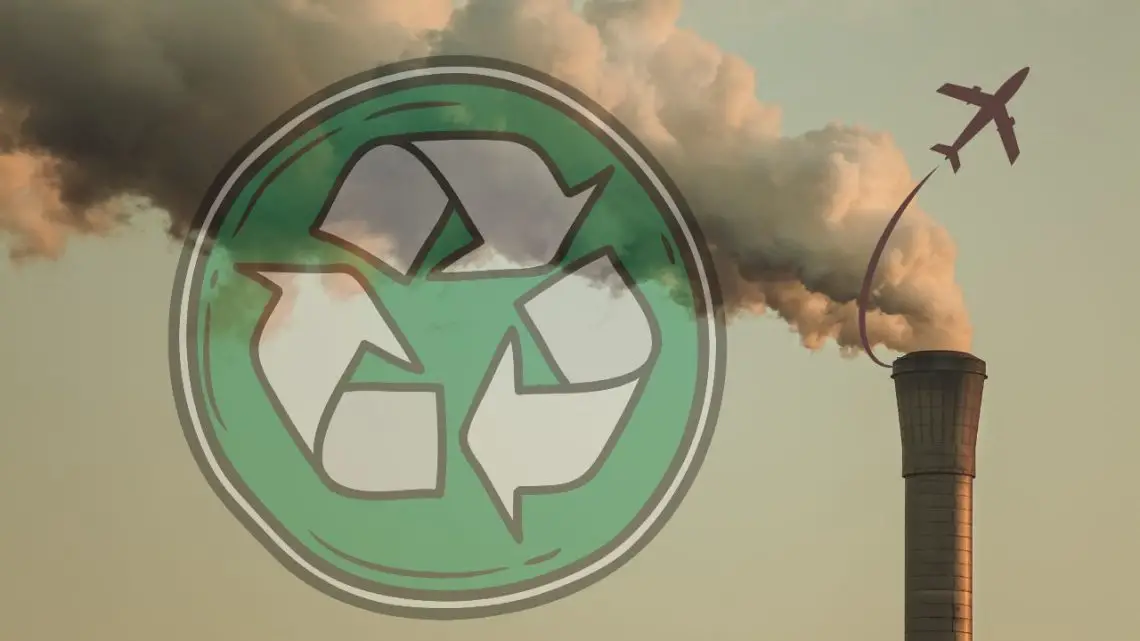
Green Hydrogen, Methanol, SAF: The Triple Carbon-Neutral Play
August 2, 2024In a groundbreaking stride towards sustainable aviation, Abu Dhabi Future Energy Company PJSC – Masdar and TotalEnergies have signed an agreement to explore the viability of developing a commercial green hydrogen-to-methanol-to-SAF (Sustainable Aviation Fuel) project. This ambitious initiative not only aims to produce SAF through renewable energy-powered electrolysis but also leverages captured CO2 from industrial sources, turning carbon emissions into a valuable feedstock for clean energy.
Turning Carbon Emissions into Fuel
The partnership between Masdar and TotalEnergies brings a unique twist to the green hydrogen narrative. By capturing CO2 emissions from industrial processes and repurposing them as a feedstock for green methanol and SAF production, the project tackles two critical environmental challenges concurrently. This innovative approach not only reduces the carbon footprint of the aviation and maritime industries but also transforms a byproduct of emissions into a vital component of sustainable fuel.
Key Benefits of the Green Hydrogen to Methanol to SAF Project
1. Direct Production of Sustainable Aviation Fuel (SAF)
Through renewable energy, the project produces SAF, significantly lowering the carbon emissions of the aviation and maritime sectors. This direct production method ensures that the fuel is both clean and efficient, aligning with global sustainability goals.
2. Utilization of Captured CO2
By using industrial CO2 emissions as a feedstock, the project effectively recycles carbon emissions. This not only contributes to environmental sustainability but also showcases a pioneering method of managing industrial waste.
3. Alignment with Strategic Policies
The project aligns with Abu Dhabi’s Low Carbon Hydrogen Policy and the UAE National Hydrogen Strategy, which aim to establish the UAE as a leading global producer of low-carbon hydrogen by 2031. This strategic fit ensures that the project supports national objectives for sustainability and energy security.
4. Support for the UAE’s General Policy for Sustainable Aviation Fuel
By aiming to supply 1% of fuel for national airlines at UAE airports using locally produced SAF by 2031, the project contributes significantly to national energy security and the overarching goal of reducing aviation-related emissions.
5. Contribution to Economic Growth and Sustainability
The initiative represents a significant milestone towards ensuring economic growth, sustainability, and energy security. It supports Masdar’s mandate to increase its renewable energy portfolio capacity to 100GW by 2030, further solidifying the UAE’s position as a global leader in clean energy.
A Successful Test Flight
Today’s agreement builds on a successful test flight conducted by Masdar and TotalEnergies during COP28 in December 2023. This demonstration showcased the potential for converting methanol to SAF, providing a tangible proof of concept for the project’s viability.
A Strategic Step Towards a Sustainable Future
The project’s alignment with Abu Dhabi’s Low Carbon Hydrogen Policy and the UAE National Hydrogen Strategy signifies a strategic step towards a sustainable future. By promoting low-carbon hydrogen as a future energy source, the initiative aims to ensure economic growth while advancing climate action.
Since its establishment in 2006, Masdar has been a key enabler of the UAE’s vision as a global leader in sustainability and climate action. The company has developed and partnered in projects across over 40 countries, with a combined capacity of over 20 gigawatts (GW). With a target to reach 100GW of renewable energy capacity by 2030 and become a leading producer of green hydrogen, Masdar continues to drive the energy transition forward.
The collaboration between Masdar and TotalEnergies marks a pivotal moment in the quest for sustainable aviation. By harnessing the power of green hydrogen and captured CO2, the project offers a dual solution to reduce carbon footprints, paving the way for a cleaner, more sustainable



 With over 15 years of reporting hydrogen news, we are your premier source for the latest updates and insights in hydrogen and renewable energy.
With over 15 years of reporting hydrogen news, we are your premier source for the latest updates and insights in hydrogen and renewable energy.
El problema de la aviación son las partículas de carbono provenientes de las turbinas, qué quedan en suspensión en la atmósfera, cooperando al calentamiento de la tierra. El e-fuel o combustible sintético o alternativo no soluciona este gran problema pues producto de la combustión se explsan partículas de carbono. Solucion, usar motores a combustión con Hidrógeno puro. El residuo expulsado por las turbinas es vapor de agua, en el exterior este se congela atrapando a las partículas de carbono qué se mantienen en suspensión y luego precipitandolas en forma de lluvia o nieve a la superficie terrestre, lugar en que la tierra recicla este elemento. El combustible sintético es apropiado para ser usado en la superficie de la tierra o vuelos inferiores a los 10.000 pies. El e- fuel es un combustible para Iá fase de transición hacia el 100% Hidrógeno qué permite utilizar gran parte de la tecnología que tenemos y cuya huella de carbono es neutra.
Gracias.